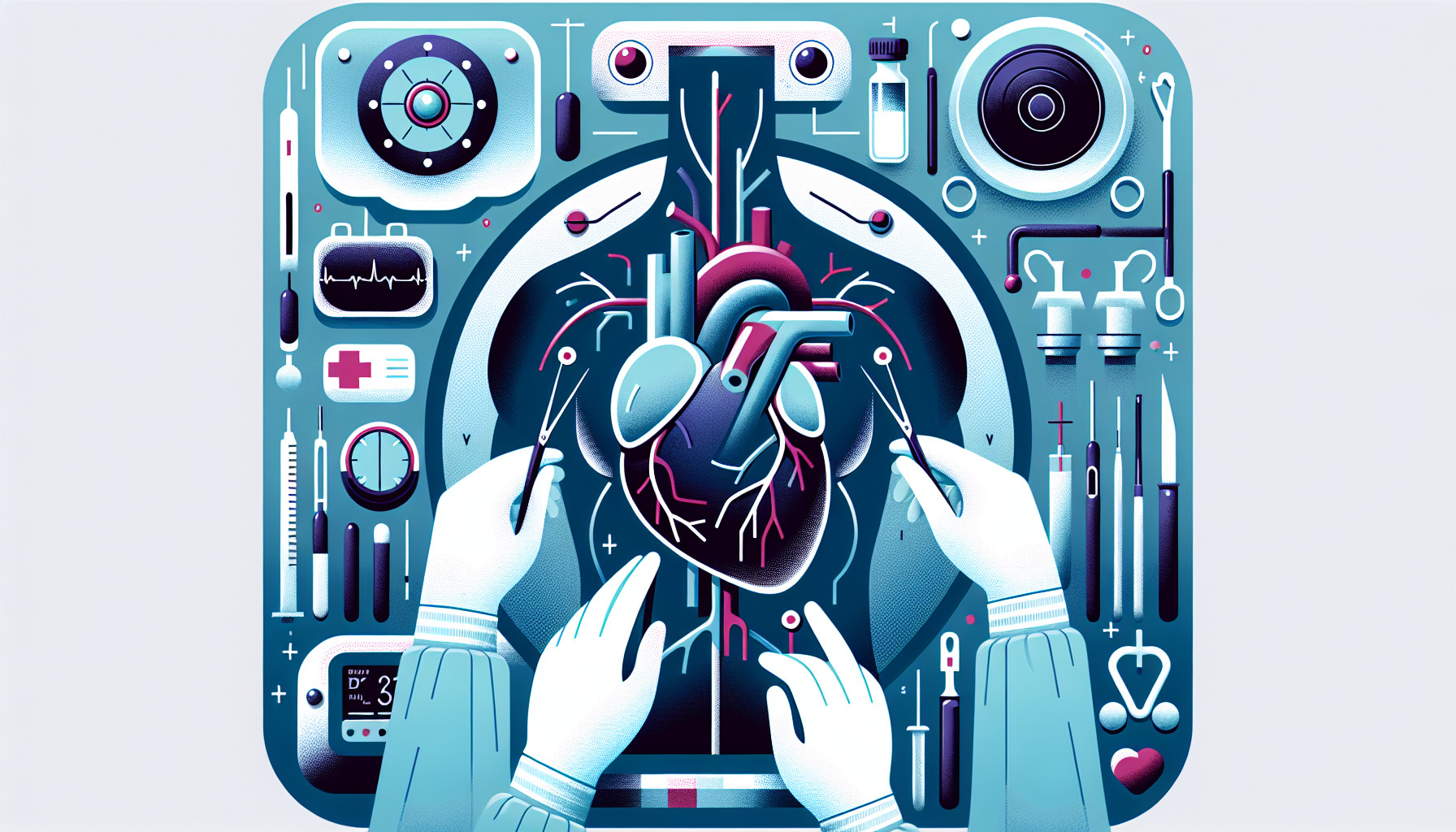Our Summary
This research paper is planning to study the effects of two types of heart bypass surgery on how the heart muscle uses energy and nutrients. These two types are called on-pump coronary artery bypass grafting (ON-PCABG) and off-pump coronary artery bypass grafting (OF-PCABG). There hasn’t been a study yet that has really dug into and compared the impacts of these two methods on the heart muscle’s metabolism.
To do this, the researchers are going to look at a whole lot of different studies that have been done on this topic. They’ll be using a bunch of different databases to find these studies and won’t be limiting their search to any specific language.
They’ll only be looking at randomized controlled trials and case-control studies, which are two types of studies that are really good at determining cause and effect. They’ll also be using a tool to make sure these studies are of high quality.
The main things they’ll be looking at in these studies are markers in heart cells, as well as levels of various substances in the heart muscle, like lactate, oxygen, pyruvate, glucose, urea, and lactate. They’ll also be looking at other things like glutathione, superoxide dismutase, myeloperoxidase, and oxidative stress, as well as any complications after surgery.
The goal is to put together a high-quality summary of the effects of ON-PCABG and OF-PCABG on the heart muscle’s metabolism. The results will be sent to journals to be considered for publication. Since this study is only looking at data from other studies, it doesn’t need ethical approval.
FAQs
- What is the difference between ON-PCABG and OF-PCABG?
- What are the primary and secondary outcomes of this study on ON-PCABG and OF-PCABG’s effects on myocardial metabolism?
- What is the purpose of this systematic review on ON-PCABG and OF-PCABG’s impacts on myocardial metabolism?
Doctor’s Tip
A helpful tip a doctor might tell a patient about coronary artery bypass is to follow a healthy lifestyle post-surgery, including maintaining a balanced diet, staying physically active, managing stress, and avoiding smoking. These lifestyle changes can help improve overall heart health and reduce the risk of future heart problems.
Suitable For
Patients who are typically recommended coronary artery bypass surgery include those with severe coronary artery disease, significant blockages in the coronary arteries, unstable angina, or those who have not responded well to other treatments such as medications or lifestyle changes. The decision to undergo coronary artery bypass surgery is usually made by a cardiologist or cardiac surgeon after careful evaluation of the patient’s overall health and medical history.
Timeline
Before coronary artery bypass surgery, a patient typically undergoes a series of diagnostic tests, such as a coronary angiogram, to determine the extent of blockages in the arteries. They may also be prescribed medications to manage their symptoms and reduce the risk of complications.
During the surgery, the patient is placed under general anesthesia, and the surgeon makes an incision in the chest to access the heart. The surgeon then takes a healthy blood vessel from another part of the body, such as the leg or chest, and attaches it to the blocked artery to create a new route for blood flow.
After the surgery, the patient is monitored closely in the intensive care unit to ensure that they are stable. They may experience pain, swelling, and discomfort at the incision site, as well as fatigue and weakness. Physical therapy and cardiac rehabilitation may be recommended to help the patient regain strength and mobility.
Overall, coronary artery bypass surgery aims to improve blood flow to the heart, reduce symptoms of coronary artery disease, and lower the risk of heart attack and other complications.
What to Ask Your Doctor
Some questions a patient should ask their doctor about coronary artery bypass include:
- What are the potential risks and complications associated with coronary artery bypass surgery?
- How long will the recovery process take and what can I expect during the recovery period?
- Will I need to make any lifestyle changes or follow a specific diet after the surgery?
- What medications will I need to take after the surgery and for how long?
- How often will I need to follow up with you after the surgery?
- Will I need to participate in a cardiac rehabilitation program after the surgery?
- Are there any specific restrictions or limitations I should be aware of after the surgery?
- How successful is coronary artery bypass surgery in improving heart function and reducing symptoms?
- Are there any alternative treatment options to consider before undergoing coronary artery bypass surgery?
- How experienced are you in performing coronary artery bypass surgery and what is your success rate?
Reference
Authors: Xie HT, Kang XQ, Zhang S, Tian YC, Liu DJ, Bai BJ. Journal: Medicine (Baltimore). 2019 Apr;98(17):e15351. doi: 10.1097/MD.0000000000015351. PMID: 31027116
